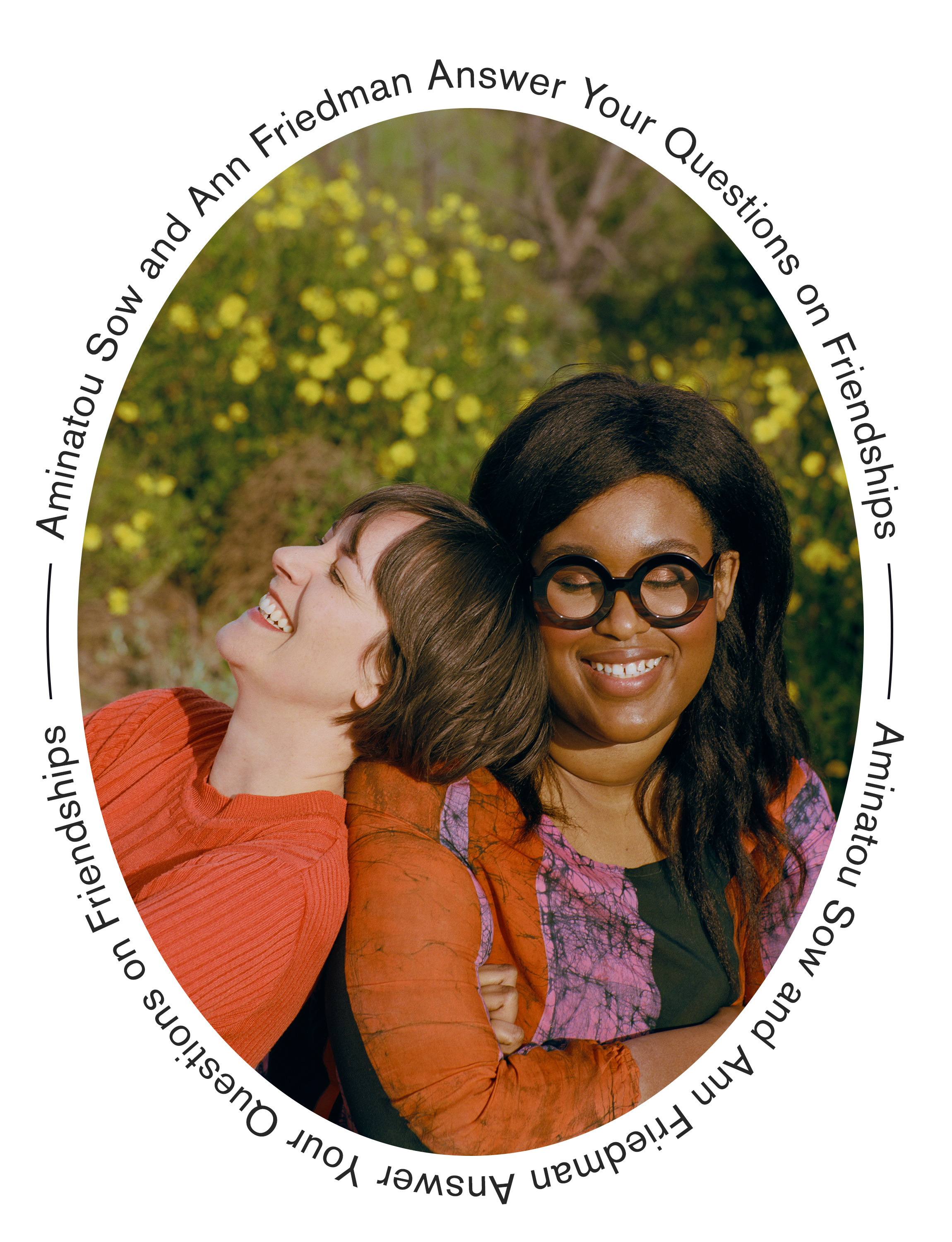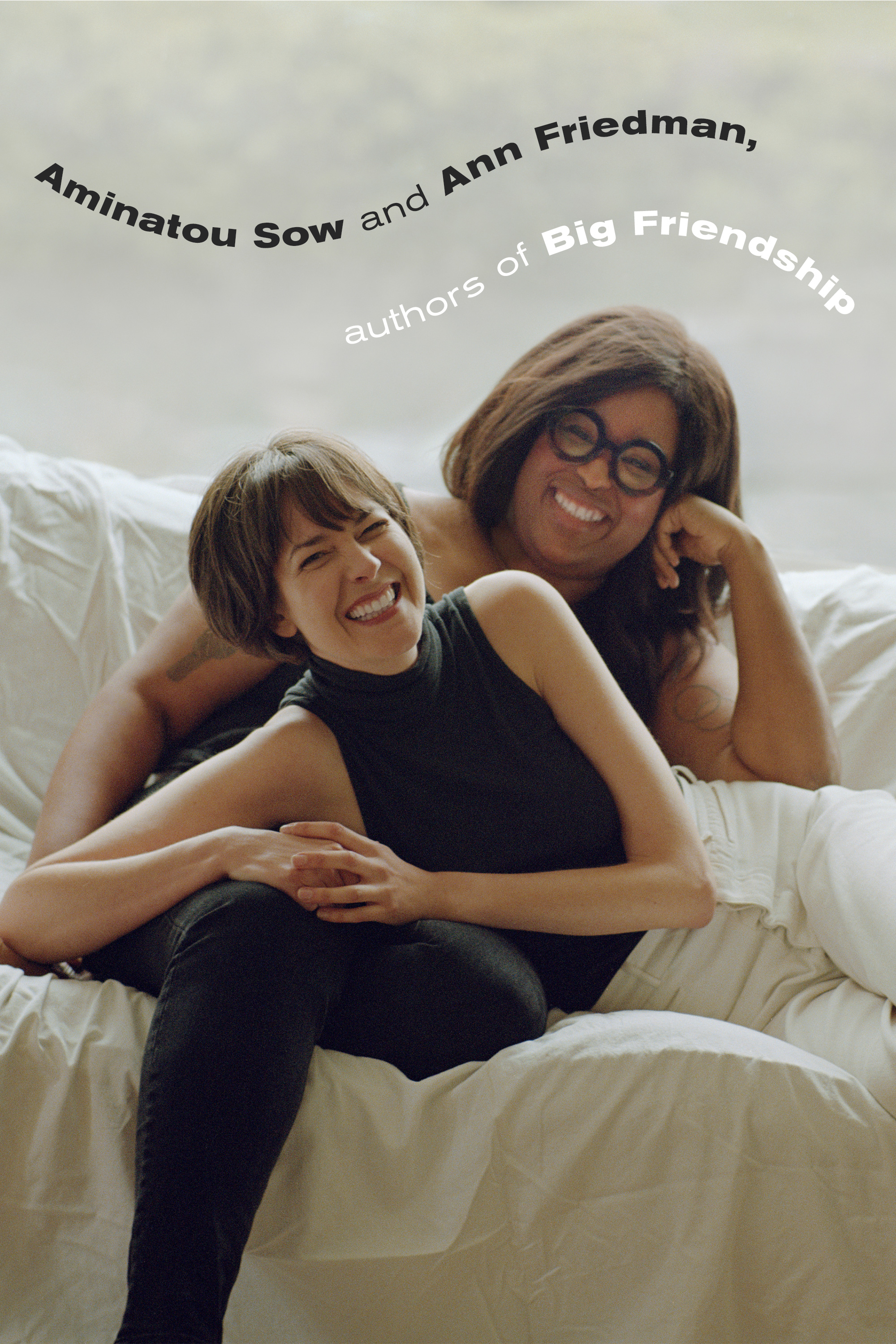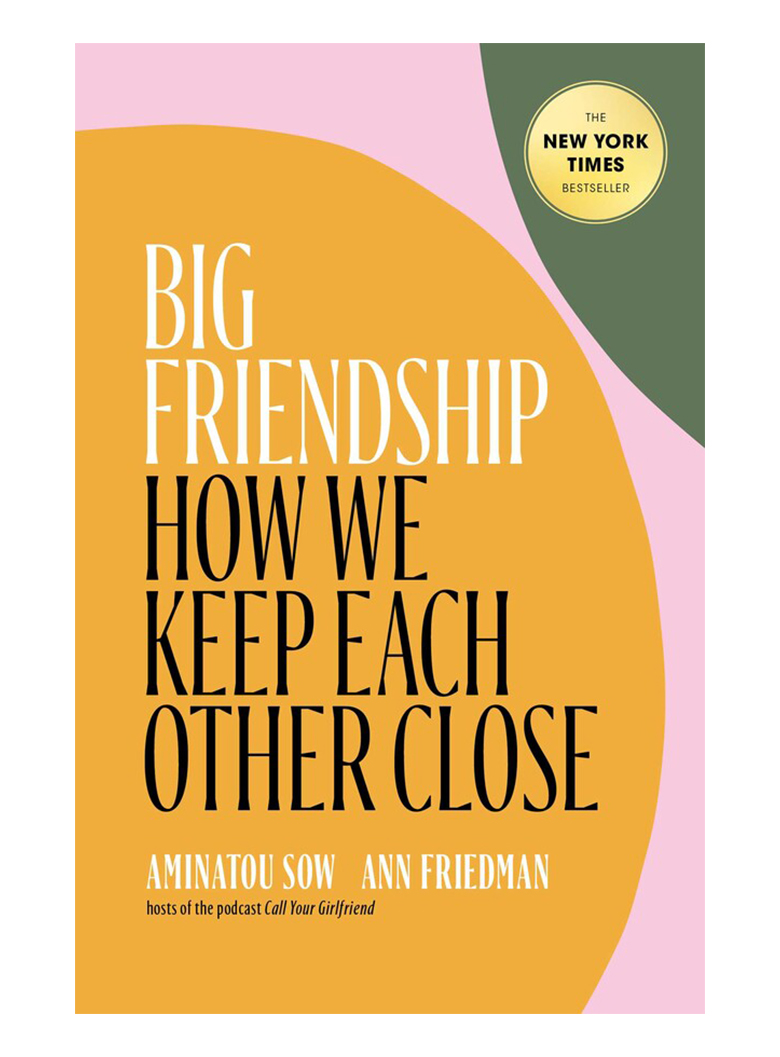How to Be a Better Friend, According to Two Professional BFFs

By this point, authors and IRL besties Aminatou Sow and Ann Friedman should have their PhDs in friendship. The pair hosts the wildly popular podcast Call Your Girlfriend, where they talk about, among many other things, their long-distance friendship; coined the term "Shine Theory” from their own group chats; and, most recently, wrote a New York Times best-selling book called Big Friendship on the subject.
While their debut book chronicles their personal relationship and the measures they took to sustain and nurture it, they are also no strangers to dealing with the challenges that arise with other types of friendships, whether through their own experiences or through learning from their peers and audience.
On Instagram, we asked you to send in for the authors any questions you have about your own friendships. Keep reading to see how Friedman and Sow tackle issues of jealousy, maintaining friends with a mental illness, and realizing whether or not a friendship is worth saving.
How do you celebrate your friends’ successes when you are secretly jealous of them?
Ann Friedman: "For me, the real heart of it is secretly jealous. If you are envious of something a friend has or accomplished, that’s natural, and it happens to all of us. Our friends are possibility models for us, and we often want things that our friends have.
The way that we have diffused that in our friendship is talking about it and asking, 'Hey, how did you accomplish that thing?' The real danger is not in that feeling of jealousy that pops up. It’s in what you do about it. So if you’re feeling secretly jealous, that means you are not communicating with your friend about how you’re feeling about their success. I think there’s a way to do that where you’re not saying, 'I can’t celebrate you because I’m jealous.' But rather introduce like, 'I’m so happy for you, and also, I find myself really envious of this thing that you have gotten/accomplished, and I would love it if you would help me get there, too. Can we do that together?' When it’s not a secret, it is not so painful."

Is it okay to not text or call very often and just interact through Instagram Stories?
Aminatou Sow: "Like all things, it depends. But if you’re asking the question, then you already know. The better question to ask is, Why are you only communicating through Instagram Stories? If it used to be part of normal life where you used to call them, why are you doing this now?
Friendship is all about communication. Ask your friend how they would like to be communicated with. Is it okay that you’re only communicating with them through Instagram DM? Is it really the best place to have conversations? Maybe for some people, but those are the things you have to decide together. And if you used to communicate a different way but stopped, maybe ask yourself why. Is it because of anxiety? Or maybe, you feel like you have too much going on. If so, then let’s find a way to change that. Regardless, you have to talk to your friend about it."
How do you know if a friendship is worth saving?
AF: "This is a tough question, but for me, I knew this relationship [with Aminatou] is one I wanted to save because, in part, it had been so important to me for so long. We were really invested in each other, and the idea of walking away from the friendship felt like walking away from all those years in emotional investment in each other.
Even though things were really bad, I looked at the whole scope of our friendship and realized they were good for a lot longer than they were bad and there’s hope for us.
But everyone answers that question in their own way with their own friendship. It will definitely vary from person to person, and at the end of the day, you will need both people in the friendship to know that they want to save it, and we were both very lucky and don’t take for granted that we decided we want to work on our friendship.
For us, that started with some curiosity, and we asked ourselves, "I wonder if we could find out more about what’s going on with the other person,” then made a decision about whether or not we wanted to invest in the other person. Maybe, if you still have that curiosity (if you’re like, "What has their experience been?” or "What part of this picture have I been missing?”), that could be an opening to figuring out whether or not you want to continue with that friendship and save it."
How do you maintain friendships if you have a mental illness, specifically depression?
AS: "This is such a good and important question. I struggle with mental illness myself, and I will say there are no magic bullets here. The first and most important thing is to just be able to communicate really, really clearly and also to try and do that in a moment when you are not in crisis.
I would really try to let my friends know what my mental illness is and how it manifests and also work through solutions together on how my friends can be there for me and how I can better communicate my needs to them before that happens.
What I would say to someone who has a friend with a mental illness is that mental illness is everywhere. It is a completely normal part of life. It’s important to not be judgmental and educate yourself and to try to understand what that looks like for your friend and to keep reassuring them that you do want to be there for them. Of course, it’s tough. But together, two people can communicate about pretty much anything."
Up next, Here's the Real Truth About Making Friends as an Adult
This article is provided for informational purposes only and is not intended to be used in the place of advice of your physician or other medical professionals. You should always consult with your doctor or healthcare provider first with any health-related questions.
